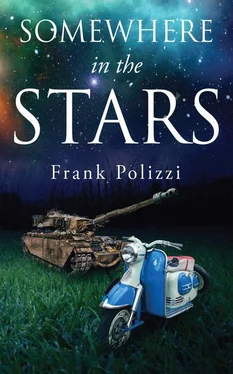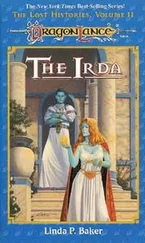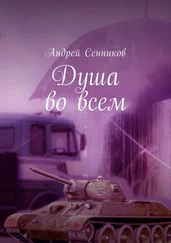“You’re not going to bullshit me, Nick.”
“No use cryin’ over spilt milk.”
“Go ahead, hide your feelings, if that’s what you want. But the whole thing with Rachele still bothers me.”
A shooting star trailed its white streak in a rapid sweep across the night sky. “Geez, did you see that, Nate?”
“Sure, clear as the expression on your face.”
“I swear it’s Paul signaling us.”
“Maybe you’re right, buddy.” Nathan tracked the stars.
“Remember when Giuliano was gunned down by that pezzo di merda SS officer?”
Nate shook his head in recognition.
“You know, Nate, after all we went through, I’ve always wondered what did happen to Carlo.”
“My father thinks he must have left for Palestine after the war with the others from the Jewish Brigade. They wanted to set up a new homeland for Jews worldwide.”
“Maybe he stayed in Italy.”
“The only way we would know for sure is if we went back and retraced his steps. But I don’t think either of us will be going back any time soon.”
Nick put his hand on Nathan’s shoulder and then he looked up at the stars.
“Imagine for a minute that Paul is looking down at us from somewhere in the stars, while we’re drinking his father’s wine. Here’s one for you cuginu.” They clinked glasses and finished off the wine, including the dregs.
The morning after the celebration, Gaetano found his son sitting at the redwood picnic table the family set up in the backyard, an al fresco version of their kitchen table. Nick drank a cup of coffee while tapping ashes into a pressed glass ashtray. Gaetano sat next to him and waited for Nick to speak, the silence louder than the festivities of yesterday.
Nick remained silent not out of disrespect, but rather cataloging in his mind all the topics that would be off-limits. He already knew that marriage was not on his agenda, though he recognized that’s what his parents most wanted, and of course, grandchildren, a boy for his father and a girl for his mother. There would be nothing to stop his parents from hinting around that theme, so from day one, Nick’s strategy would be a fulltoothed smile followed by responses they wanted to hear. What happened in Italy during the war, a country so far away now, would not be broached at any table, inside or out, except for one topic.
“ Papà !”
“Come stai, Nicolo?”
“Beni, Papà. I spoke to Nannu .”
“Nannu? Non possibbili!” Gaetano’s face turned white. “Patri miu è mortu! The Municipio wired me his death notice. No relatives left in Sciacca.”
“You don’t understand. I spoke to him when I was in Sicily. Right before our squadron headed out for Palermo.”
Gaetano pinched his fingertips against the right thumb and shook his hand lightly, as if to say: ‘What in God’s name are you saying?’
“ Nannu must have died sometime after I left him,” Nick blurted out, wiping some tears from his cheek.
“July 24, 1943, figghiu miu .”
“I’ll always remember that afternoon with Nannu. He may have been very old, but the lines in his face showed strength.” Nick’s eyes lit up. “He charmed me with so many stories about you.”
Gaetano wept and Nick hugged his father.
“Pop, he said I looked like you.”
“Si, è veru, tu si un Spataro. Bravu, Nicolo .”
* * *
By the beginning of the 1946 New Year, Nathan had enrolled at the San Francisco Art Institute in the Russian Hill district to study graphic arts, while Nick started at the San Francisco State College majoring in American Literature, the GI Bill of Rights picking up the cost. Throughout the spring semester they would meet up at the Legion of Honor Museum like before and take in the latest exhibit, followed by a game of catch in Lincoln Park, avoiding subjects that might remind them of the war years. They buried themselves in their studies and the semester moved along in an uneventful way.
Nick took a psychology course as an elective and enjoyed reading about behavior and the dynamics of family and how they related to the outside world. He didn’t like it when he saw himself as someone boxed in by these ties and his North Beach enclave. The saying that ‘you can take the person out of neighborhood, but you can’t take the neighborhood out of the person’ troubled Nick not because he was sorry about his life in North Beach, but that he might be forever stuck in time and place. So he put his textbook down and lost himself in novels from the nineteenth century, Mark Twain his favorite author since high school. He had been closed out of a British Lit course from the same time period and chose Russian literature as a good counterpoint to his major.
One spring afternoon at San Francisco State, Nick sat on a small patch of grass under a Bronze Loquat tree near the old main building with its soaring, Italianate tower. The sun shone and some red, yellow and white tulips slid out of green sheaves, a cool breeze cutting the new heat of the sun, while he read Chekhov’s story, “The Lady with the Pet Dog.” Nick was so engrossed by the narrative, he lost sense of his surroundings. When he finished the story, it was the first time in a long while he felt right with the world, even though he didn’t have a woman to share it with. He began to sound more like his mother and tried to stop her words from echoing in his head. Nick thumbed through the pages of the short story and reread the climactic closing. When he looked up, he heard kew notes ending with a whistle from the tree right above him. As he searched for the exact location, a western bluebird, its head and feathers a brilliant blue over a rust body, flew away to rendezvous with his mate. He watched its flight as the male bird found refuge in a tree across the street. His eyes dropped to the students passing by and came across a familiar face that didn’t belong on campus and he rose up to greet her.
“Deborah, is it really you?” Nick would have liked to rehearse what he wanted to say, but she was right in front of him, anxious about this moment since his discharge from the service.
She laughed nervously as she put the break on the carriage she was pushing. “Nicky, I can’t believe it. Nathan told me all about you. You look so mature now.” She laughed again. “I mean in a good way.” He flashed back to their time in the San Francisco Botanical Garden, as she fixed the blanket covering the baby.
“You’re still pretty as ever, Deb.” Her face turned pink while he mumbled something as the baby cooed. Deborah pushed her long hair back as he asked: “Babysitting?”
“What? Oh, he’s mine. Didn’t Nathan tell you anything?”
Nick winced, then composed himself. “Let me have a look. Cute, very cute.” It was his misfortune to run into Deborah, with a kid no less, and still beautiful. He was just a schmuck still going to school, while she was getting on with her life. “How old is she?”
“It’s a boy. Has the good looks of his father.”
“Nah, he’s a dead ringer for you.” He lied but continued. “I see a little of Nathan in the kid too.”
“No, he’s all David. Oh, that’s my husband. We got married before he joined the Coast Guard. He’s going nights at San Francisco Law School, thanks to the GI Bill.”
Deborah may have appeared nervous but Nick’s stomach tightened in pain, and then his leg began to act up causing him to wince. His eyes glazed over Deborah and the child. He wanted to end this conversation.
“Nicky, I’m really sorry. I hope that you don’t hate me. The last letter I got from you was when you were still in tank training.”
Читать дальше












